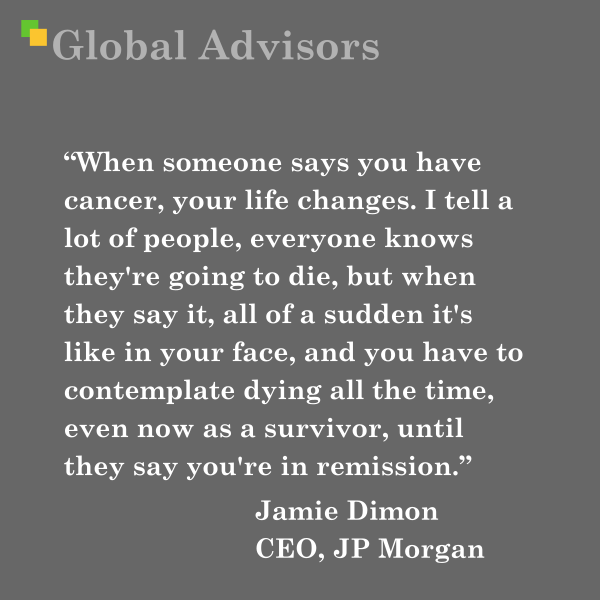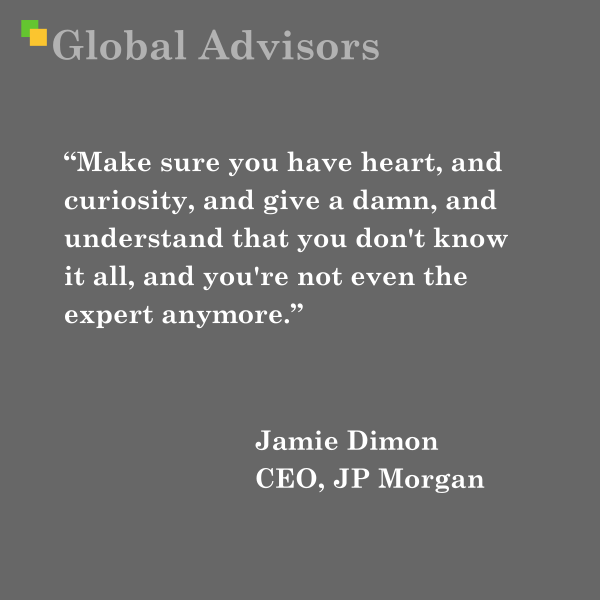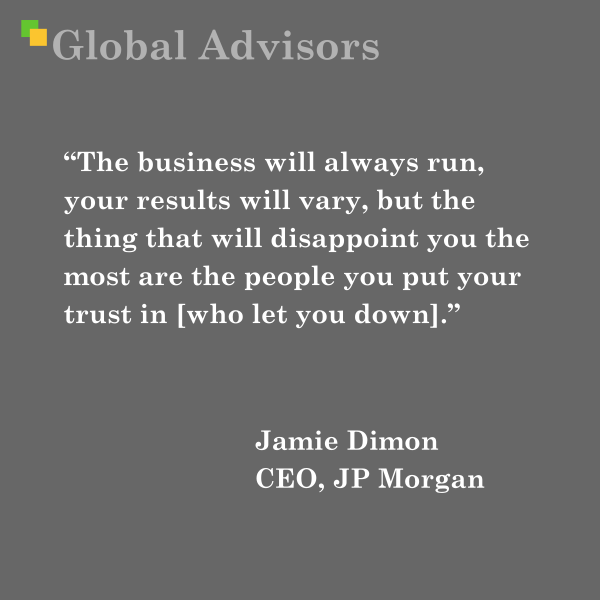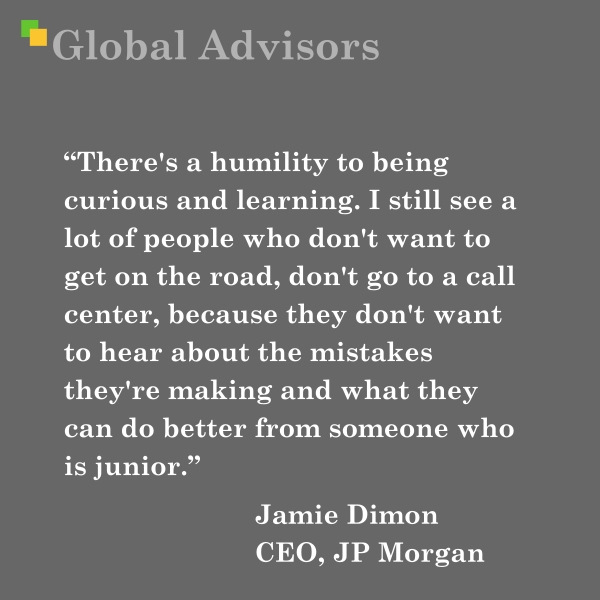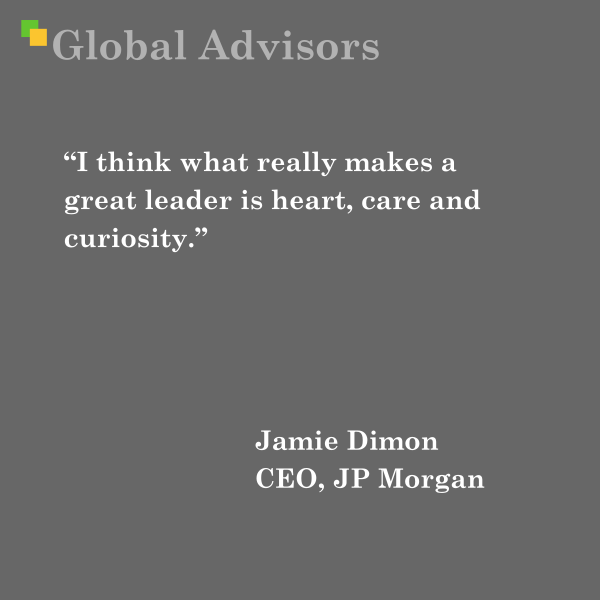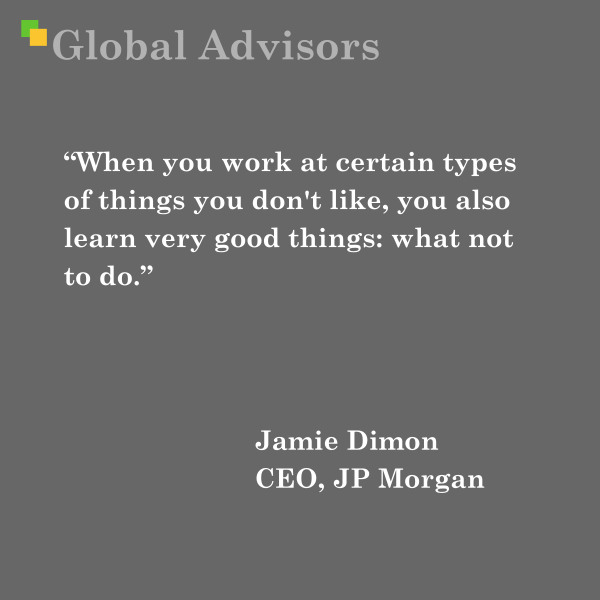“When someone says you have cancer, your life changes. I tell a lot of people, everyone knows they’re going to die, but when they say it, all of a sudden it’s like in your face, and you have to contemplate dying all the time, even now as a survivor, until they say you’re in remission.” – Jamie Dimon, CEO JP Morgan
Leadership is often associated with strength, decisiveness, and unwavering focus. However, true leadership also requires vulnerability, self-awareness, and the ability to confront life’s most challenging moments with grace and resilience. This is powerfully illustrated in a quote from Jamie Dimon, Chairman and CEO of JPMorgan Chase, as he reflected on his experience with cancer: “When someone says you have cancer, your life changes. I tell a lot of people, everyone knows they’re going to die, but when they say it, all of a sudden it’s like in your face, and you have to contemplate dying all the time, even now as a survivor, until they say you’re in remission.”
Dimon, a figure known for his relentless drive and unwavering confidence, offers a deeply personal perspective on facing mortality. In the original interview, Dimon was discussing how his health challenges had changed him over time, noting, “I don’t think you realize immediately what it does.” He emphasized that a cancer diagnosis forces you to confront your own mortality in a way that few other experiences can. He also shared the emotional burden of having to tell his parents, “I didn’t want to tell my parents I may die before them.”
This quote and the surrounding context highlight several key principles:
- The Power of Perspective: It underscores how a life-threatening illness can shift your perspective and force you to re-evaluate your priorities, leading to a more deliberate approach to life. As Dimon stated, “It does make you live a little more deliberately about how you run your life and what you do and how you spend your time.”
- Confronting Mortality: It acknowledges the emotional and psychological challenges of facing your own mortality and the ongoing impact of that experience, even after treatment. The constant contemplation of death becomes a new reality.
- Resilience and Gratitude: It speaks to the resilience required to navigate a serious illness and the profound sense of gratitude that can emerge from surviving such an ordeal. This resilience was further tested when Dimon later suffered a heart attack. However, he found a sense of peace in knowing that he had addressed any regrets he might have had in the time since his cancer diagnosis. As he reflected while being wheeled into surgery for his heart condition, “I knew I knew was maybe not even 50/50 I would survive, that I didn’t have any regrets because the ones I might have had I actually fixed the first time around.”
- Impact on Leadership Style: While Dimon maintained his love for his work and country, his health challenges did change “how you deal with certain people and certain issues,” suggesting a shift in his approach to leadership.
Dimon’s message is a powerful reminder that life is precious and that leadership is not just about achieving professional success, but also about living a meaningful and fulfilling life. It’s a call to embrace vulnerability, to confront challenges with courage, and to appreciate the moments we have. It’s a reminder that true strength lies not in avoiding difficult emotions, but in facing them head-on and emerging stronger on the other side. It also highlights the importance of family and friends during difficult times. The peace he found in addressing his regrets allowed him to face a new health crisis with a sense of acceptance and resolve.
